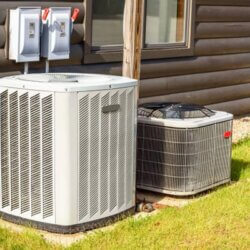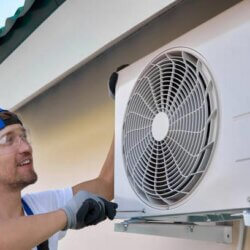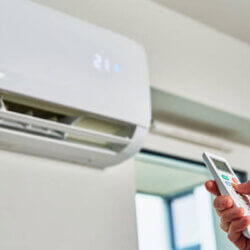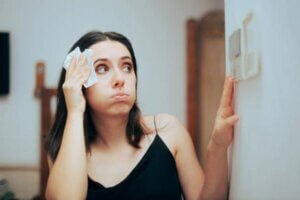
An air-conditioner can experience a number of issues. While some are easy to diagnose on your own, others require professional HVAC services and repair. In this post, we take you through some common AC problems and how to troubleshoot them. For AC repairs and HVAC service maintenance in the greater St. Louis area, contact Galmiche and Sons. We have been serving St. Louis, MO for over 70 years, performing scheduled maintenance and attending to emergency repairs for homeowners and business throughout the area.
For more information on our AC services or to schedule your air conditioner servicing, please call us at 314-993-1110 or fill our contact form online.
Handling Common AC Problems
When it comes to common AC problems, there are some things that you can do to troubleshoot yourself. Some AC problems that homeowners can try resolving include the following:
AC Not Turning On
There are many potential reasons an AC may not turn on. Often, it is due to a tripped circuit breaker. In some cases, faulty wiring can be the cause.
When your AC doesn’t turn on, check your fuse box to see if the circuit tripped. On the side of the breaker box, turn the circuit breaker switch to the off position and then switch the breaker back on. If all is fine and your AC is still not switching on, call in our technician. Performing electrical inspections is risky and best done by a HVAC professional.
AC Not Blowing Cool Air
If you’re surprised to find that your AC is blowing hot air, it could be due to a dirty evaporator or air filter, low refrigerant levels, or even thermostat problems. To prevent problems, change/clean your air filter every month, depending on how often you run your AC and whether you are living with pets or allergy sufferers.
Under normal operation, your AC should never lose refrigerant. If you suspect a refrigerant leak, have our technician look at your unit.
Although AC not blowing hot air is one of the common AC problems, the issue can sometimes be with your thermostat settings. Power surges can cause a thermostat to reset to factory defaults. Check if your thermostat has the right settings in place. You can also try lowering it by a few degrees to see if the air cools.
Bad Odors from Your AC
From clogged air filters or drain lines and mold and mildew growth to dead critters and electrical issues, there are various reasons for the funky smell from your AC. Apart from changing air filters, avoid fixing other issues if you are not familiar with the part of an AC or handy with tools. In the event of a rotting smell that strongly suggests a dead rodent or bird, contact a pest control team or your HVAC professionals to have the animal removed from your unit and afterwards, you may want to have the ducts cleaned by an HVAC professional.
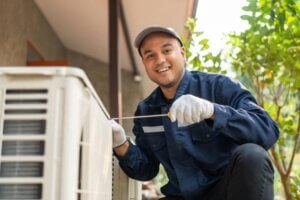
Your AC is Making Strange Noises
One of the most common AC problems is the annoying noises an AC can make. Although some causes of strange HVAC noises are benign and easy to handle on your own, others require inspection by an HVAC technician.
If you hear banging or rattling, it could be due to loose screws or a broken fan or motor. You can tighten the screws with a screwdriver. An HVAC technician will replace a broken motor. If your AC unit has been in service for more than 15 years, you should consider replacing it with a new, more energy-efficient product.
A hissing sound from an AC is a refrigerant leak, which happens due to damage to the refrigerant line. A refrigerant leak can cause serious health problems. Contact Galmiche and Sons on 314-993-1110 to resolve the issue immediately.
Routine Maintenance Helps Avoid Common AC Problems
The best way to avoid common AC problems is to perform professional AC maintenance at predetermined intervals. To keep your AC system running smoothly, schedule regular heating and AC maintenance with Galmiche & Sons at least once per year. To request our services or learn more, call us at 314-993-1110 or contact our heating and air conditioning experts online.



